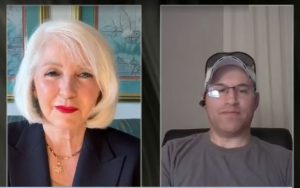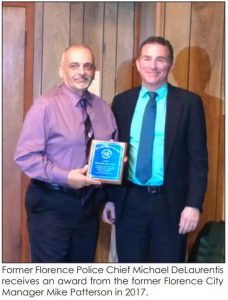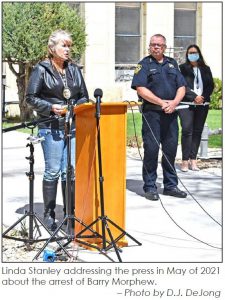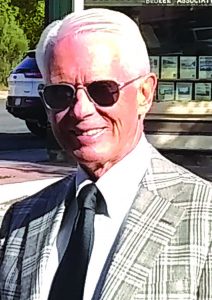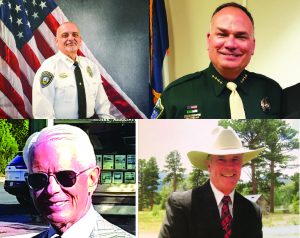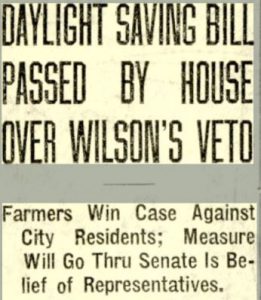-Elliot Jackson. Originally published on 4/13/23
The Custer County School held its preschool registration for next school year on March 31, where school staff enrolled students for the three-year-old and four-year- old classrooms, as well as slots in the infant and toddler rooms of the brand-new onsite early childcare and learning center. “We had lots of new families registering for both [afternoon and morning] classes,” reported Custer County Kids Council (CCKC) Chair Stacy Terrill. “Universal Pre-K is a new process across the state, so we were checking online eligibility for the programs. For four- year-olds it’s free for 15 hours, for three- year-olds it’s free if they have one qualifying factor, such as homelessness, or kinship care or foster care. For four-year-olds with one of the qualifying factors, they can get all day qualification. For three-year-olds with no qualifying factor, the families get a regular school application.” (Colorado passed its Universal Prekindergarten, or UPK, law in 2022, which provides free prekindergarten for all four-year-olds beginning in the 2023- 24 school year.)

Terrill, and Preschool and Childcare Director Carolina Henderson, said that there had been seven 3-year-old registrations that day, along with sixteen four-year-old registrations already: “We are almost full for four-year-olds – we have twenty slots, so we only have four left.”
“[The registration process] opens moms’ eyes to the childcare center,” said Elementary Counselor and Librarian Rachel Curtis: “They wouldn’t have known about it otherwise.”
Terrill explained that prior to UPK, there had been limited free preschool access for four-year-olds through the Colorado Pre- school Program, or CPP. “Through UPK, all four-year-olds are now eligible, where before you had to have a qualifying factor [for CPP].” She noted that that the Custer County School District now had four schools: early learning, elementary, middle and high school: “We have infants from six weeks old to 12th grade.”

Terrill also gave some background on the current early childcare and learning center on campus. “It came out of COVID. In the fall of 2020, school had to go to remote instruction, not because so many staff were sick, but because of a lack of childcare in the county! [Former Superintendent] Mike McFalls came to CCKC in 2021 to ask, ‘How do we get childcare center started.’ Mike saw this as a recruiting tool for teachers and staff.”
“In Texas, where I taught previously, we had this onsite as well,” said Curtis: “So I went to Mike and asked, ‘Why aren’t we already doing this?’”
“Mike got advice from other community stakeholders, including CCKC,” Terrill continued: “A lot of back and forth and research went on: ‘Can we do this in church space in town, do we build on campus, do we find a building elsewhere in town?’ CCKC helped seek funding for a brand-new modular, but while that was going on, was there a short- term fix? There was–the Church of Christ in Silver Cliff. We opened a toddler center there, with four students to start with, and in December 2021 it was licensed. We stayed through December 2022, when we got a new license, a large center license for multiple classrooms, for our on-campus modular.”
Terrill said that CCKC plays a role in “helping Carolina go through the licensing process and getting funding, making sure staff has licensing, and acting as a support system for [other childcare] providers.”
“We just hired two new staff,” Henderson noted: “I was going through requirements and goals–[our center] is not a typical “childcare center”. All our teachers are well-trained and are qualified to work in an early childcare learning center. We are partnering with Pueblo Community College, maybe, and for sure Red Rocks [Community College] to get continuing ed [for staff.] The center is their lab–they are working full-time while working through with their credentials.” Henderson also noted that a graduating CCHS student has been hired full-time: “Students can do their work-study and get Early Childhood Education cred in the same timeframe.”

Asked whether UPK would be making a difference to school readiness, Terrill hesitated: “That’s a loaded question–but will it make a difference to our community? Yes.”
“Poverty is a huge factor in education and children’s development,” Henderson added: “There have been studies showing that middle-class families can have 17-35 books per child [in their households], while poorer households have one book for every 15 children. Poverty can lead to student challenges that get misdiagnosed as learning disabilities.”
Curtis said that the school library partners with the public library, which just got a grant to fund the Dolly Parton Imagination Library program, which distributes free books to children five and under: “We advertise for each other, and we are doing a lot of coordination with those events. Next year we hope to do even more programs with local [businesses]–kids can earn gift certificates for books they read. Reading books is starting to go away because of technology– but kids love the library here!”
Curtis has a personal connection with the new early childhood center: “My two youngest are in the program. Knowing how close we are helps–they can come visit mom. From a family perspective it’s huge. Our Elementary Music Teacher, Mrs. Goddard, has said she would not be here teaching if her grand- kids couldn’t be here [in the program]. I prob- ably wouldn’t be working here if we didn’t have the center, it’s dream to reality.”

“Childcare availability has a ripple effect throughout the community,” Terrill observed. She credited both Mike and Elizabeth McFalls, the first childcare center director, as well as the current school board and administration, for the state of the Custer County preschool program: “Without them, we wouldn’t be here.”
– Elliot Jackson



